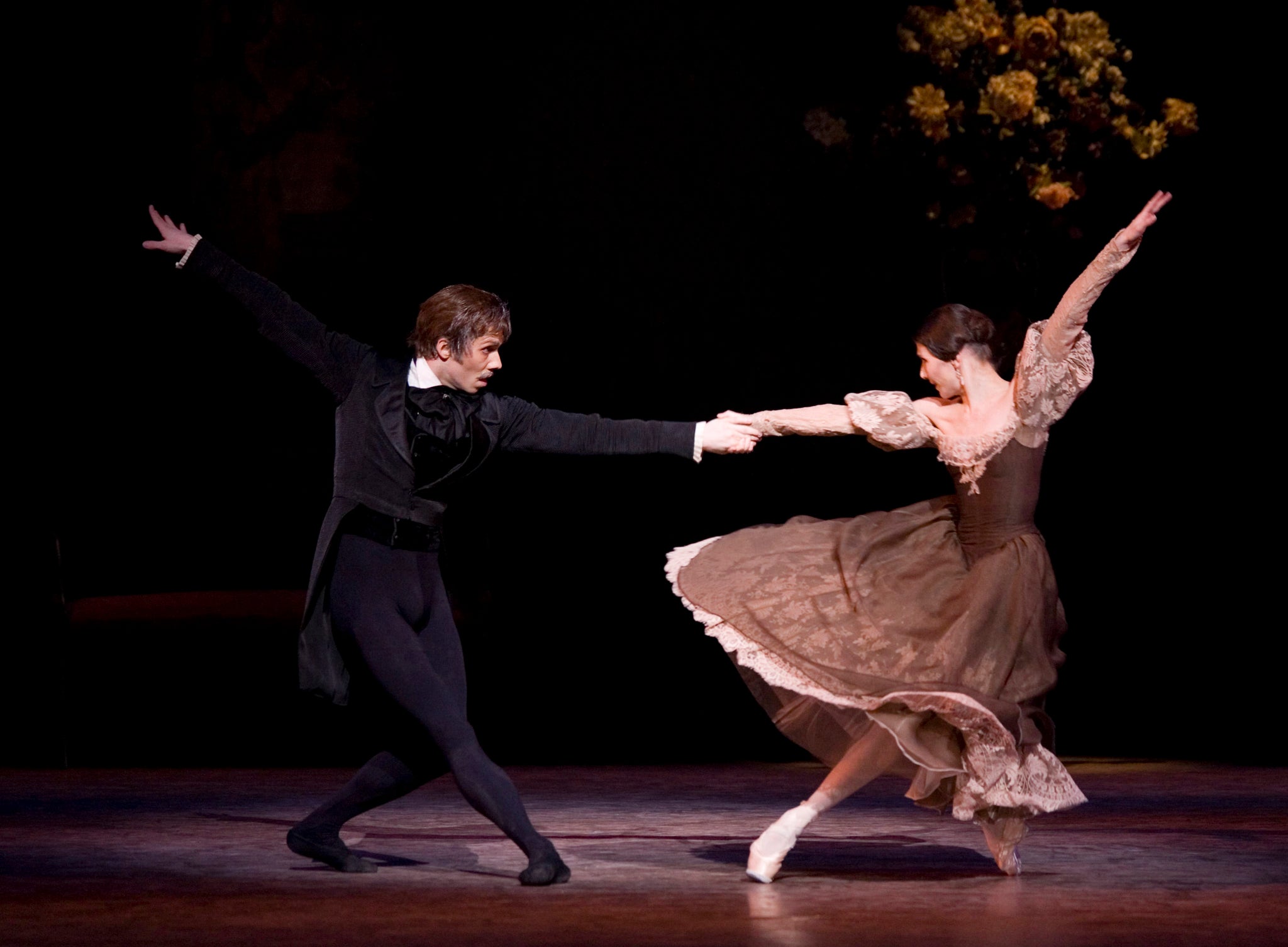
Your support helps us to tell the story
From reproductive rights to climate change to Big Tech, The Independent is on the ground when the story is developing. Whether it's investigating the financials of Elon Musk's pro-Trump PAC or producing our latest documentary, 'The A Word', which shines a light on the American women fighting for reproductive rights, we know how important it is to parse out the facts from the messaging.
At such a critical moment in US history, we need reporters on the ground. Your donation allows us to keep sending journalists to speak to both sides of the story.
The Independent is trusted by Americans across the entire political spectrum. And unlike many other quality news outlets, we choose not to lock Americans out of our reporting and analysis with paywalls. We believe quality journalism should be available to everyone, paid for by those who can afford it.
Your support makes all the difference.John Cranko’s Onegin feels like the ballet-of-the-opera, a watered-down version of a stronger story.
The music and designs are mimsy; the onstage world gets very sketchy at the edges. What keeps Onegin on stage is its four big roles: Pushkin’s plot gives dancers a chance to emote their socks off.
This Royal Ballet revival needs more energy, though Alina Cojocaru’s Tatiana gives it presence and depth. Meeting Onegin, she’s both self-conscious and yearning, a shy country girl trying to make sense of her own feelings. She’s intensely aware of him: you notice when their hands almost touch.
Created for Cranko’s own company, the Stuttgart Ballet, in 1965, Onegin helped to give choreographer and company an international reputation. For this performance, Stuttgart dancer Jason Reilly stepped in for an injured Johan Kobborg. He’s a smoothly-controlled dancer, strong in the elaborate partnering. In early scenes, he lacks darkness as the brooding aristocrat, though I like his exasperation with Tatiana’s girlish infatuation.
He grows in presence throughout the ballet. He’s at his best in the last act when, meeting Tatiana again, he realises what he’s lost. He starts their final duet by abasing himself, falling at her feet. Reilly sinks slowly, hopeless even as he tries to persuade her.
Cojocaru sweeps desperately through the big lifts. For the moment when she considers leaving her husband, she lets a new abandon flow through her outstretched limbs. Control returns when her sanity catches up, though she’s devastated by rejecting him.
Akane Takada dances Olga, Tatiana’s flirty sister, with fluent grace, but she’s less at home with the drama of the role. Steven McRae is an ardent Lensky. In the ballroom scene, he fidgets with his gloves, dropping them as he becomes jealous. They’re readily to hand when he needs to challenge Onegin to a duel. Bennet Gartside is tender as Prince Gremin, Tatiana’s devoted husband. Genesia Rosato and Kristen McNally are robust as Madame Larina and the nurse.
Cranko’s corps de ballet dances lack character: they’re neither classical setpieces nor chances for storytelling. More attack and focus could lift these numbers, but the Royal Ballet corps move dutifully through the Russian dances and ball scenes. They’re not helped by the music, a patchwork of Tchaikovsky arranged by Kurt-Heinz Stolze.
It’s tuneful but bland, lacking the emotional punch of the opera Onegin or of Tchaikovsky’s own ballet scores.
Until 8 February. Box office 020 7304 4000.
Join our commenting forum
Join thought-provoking conversations, follow other Independent readers and see their replies
Comments